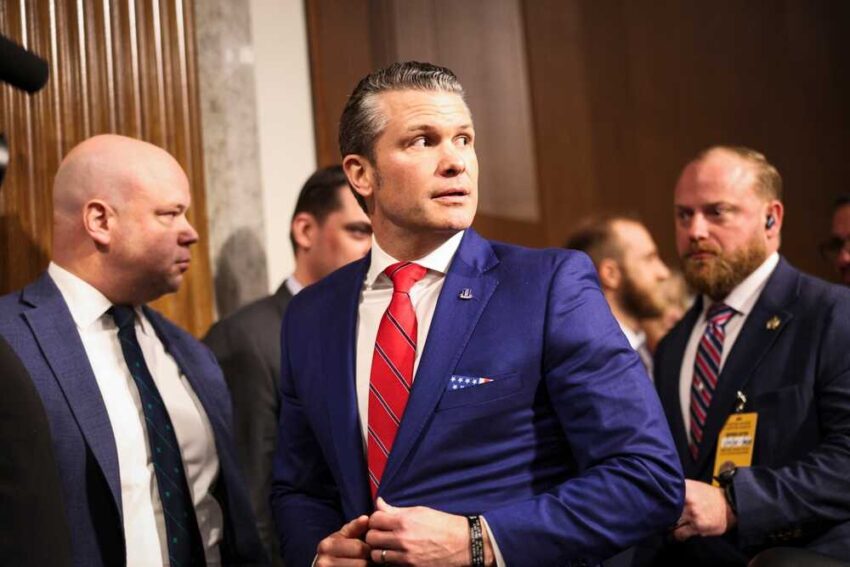(LibertySociety.com) – The Pentagon’s condemnation of the Washington Post’s exposé on Defense Secretary Pete Hegseth’s security didn’t just ignite a media firestorm, it forced America to re-examine the razor-thin line between transparency and jeopardizing lives.
Story Snapshot
- Pentagon officials claim the Washington Post endangered Secretary Hegseth and his family by publishing security details.
- The episode exposes long-standing friction between press freedom and operational security.
- No apology or retraction issued; both sides defend their actions amid public debate.
- Calls intensify for new media guidelines, raising stakes for future government-media relations.
Pentagon vs. Washington Post: Battle Over Security Disclosure
Pentagon officials erupted after the Washington Post published exclusive details about Defense Secretary Pete Hegseth’s security arrangements. Their public rebuke came fast and hard, accusing the newspaper of endangering the lives of Hegseth and his family. This was not a polite disagreement behind closed doors, it was a direct confrontation that played out on the national stage, with both institutions clinging fiercely to their principles.
The Washington Post positioned its story as a necessary probe into government transparency, questioning how public resources are deployed to protect top officials. Pentagon leaders, meanwhile, painted the disclosure as reckless, insisting that revealing such protocols hands adversaries a roadmap to exploit vulnerabilities. The timing couldn’t be more charged: Hegseth’s controversial appointment and a climate of global unrest made security a matter of life and death, not mere policy.
Historical Tensions and Political High Stakes
America’s struggle to balance press freedom with national security is nothing new. The Pentagon Papers in 1971 and the Snowden leaks in 2013 set precedent for these conflicts, but the stakes have arguably never been higher. Security details for officials like Hegseth are closely guarded for good reason; classified protocols are the last barrier between public servants and those who wish them harm. The Post’s exposé landed in the midst of rising threats, both foreign and domestic, making every syllable a potential risk factor.
As commentators and security experts weighed in, parallels to earlier incidents emerged. Reports on Vice President Pence’s travel security in 2017 triggered a review of press guidelines. Criticism of the New York Times for revealing CIA operations in 2022 still ripples through media circles. Each episode forces journalists and officials to recalibrate, how much does the public need to know, and when does that need cross into recklessness?
Expert Opinions on Ethics, Risks, and Legal Boundaries
Media ethicists and security analysts wasted no time dissecting the fallout. Columbia Journalism Review underscored the ethical tightrope: journalists must weigh the public’s right to know against the real potential for harm. RAND Corporation analysts warned that even minor details, often dismissed as harmless, can become weapons in the wrong hands. Legal scholars pointed out that the First Amendment’s shield is not absolute; information that presents a clear and present danger can fall outside its protection.
Pentagon officials blast Washington Post for putting ‘lives at risk’ with report on Pete Hegseth’s security https://t.co/9nMW3BkMBu #FoxNews @wapo @JeffBezos WTH???
— Julie Christian (@jchristian61) August 21, 2025
Journalism professors stressed the importance of editorial judgment and collaboration with security experts. Former defense officials echoed the call for ongoing dialogue, urging both sides to resist the urge for absolutism. The broader media landscape watched nervously: would this incident lead to self-censorship or a chilling effect on investigative reporting? Or would it force a mature, nuanced approach to publishing sensitive information?
Implications for Government, Media, and the Public
Immediate consequences were felt at the Pentagon. Security protocols for Hegseth and his family came under review, with a likely uptick in costs and complexity. The Washington Post, standing by its reporting, refused to retreat, and the debate over press responsibility versus official secrecy intensified. Both institutions understand the power they wield, one as the guardian of democratic scrutiny, the other as the shield against real-world threats.
Long-term, the effects may ripple far beyond this one episode. Journalists face the specter of legal and professional repercussions, and government agencies may push for stricter media guidelines. The public, caught in the crossfire, risks losing access to critical information or, worse, losing trust in both the press and the defense establishment. The precedent set here could define the boundaries of investigative journalism for a generation.
Copyright 2025, LibertySociety.com .
Click this link for the original source of this article.
Author: Editor
This content is courtesy of, and owned and copyrighted by, https://libertysociety.com and its author. This content is made available by use of the public RSS feed offered by the host site and is used for educational purposes only. If you are the author or represent the host site and would like this content removed now and in the future, please contact USSANews.com using the email address in the Contact page found in the website menu.





